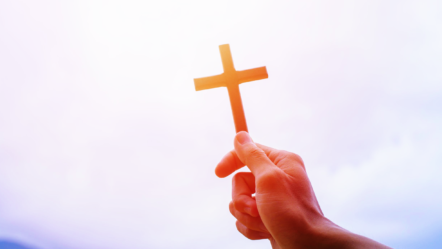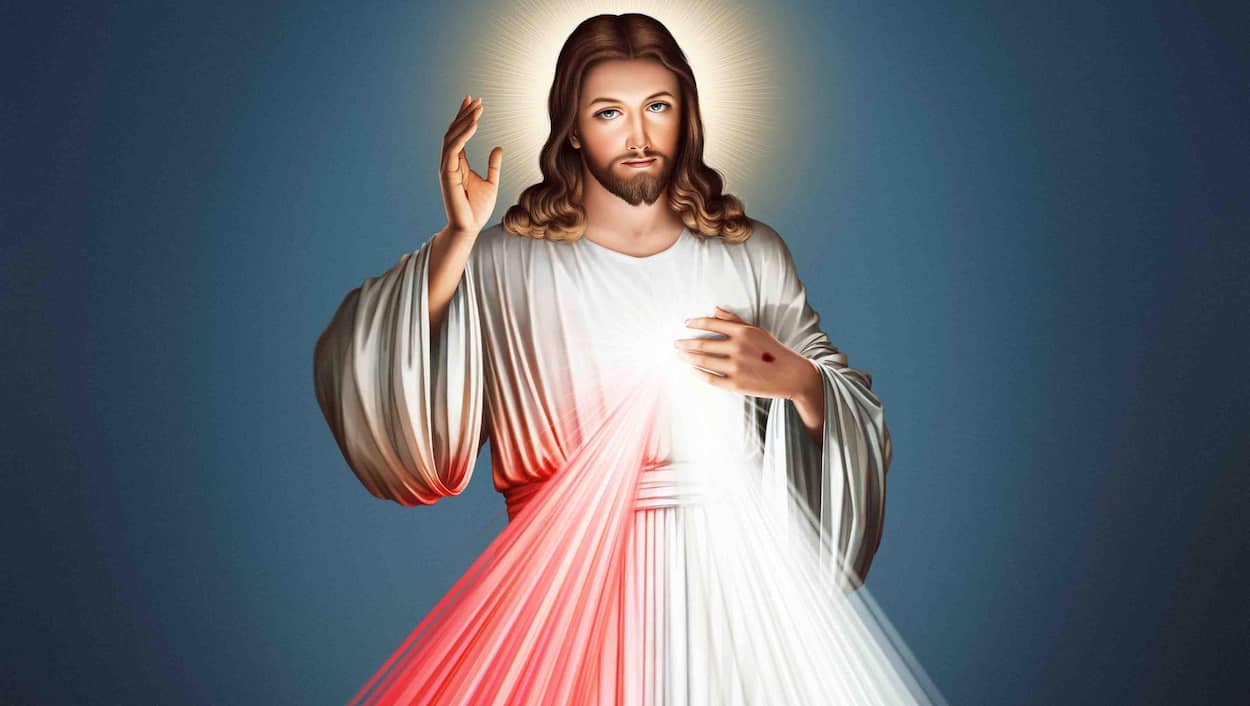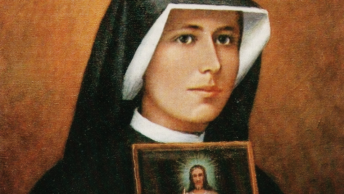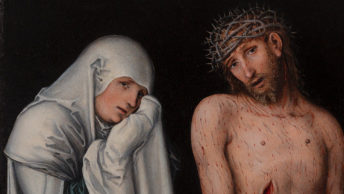As we were praying the Novena of the Divine Mercy that prepared us to celebrate Divine Mercy Sunday, I felt something very interesting happening. Upon going through the Novena one can encounter similarities with the Good Friday Solemn intercessions. What is the relationship between the Novena of the Divine Mercy and the Good Friday Solemn Intercessions? Before answering these questions let us examine both prayers individually first.
As we know the Divine Mercy Novena starts on Good Friday. In her Diary, St Faustina writes the following: Novena to The Divine Mercy which Jesus instructed me to write down and make before the Feast of Mercy. It begins on Good Friday (Diary, 1209). Hence, it was Jesus himself who asked St Faustina that the Feast of the Divine Mercy, or the Divine Mercy Sunday, is preceded by a special Novena to the Divine Mercy. As a matter of fact, Jesus handed on to this great Polish mystic the specific intention for which she was going to pray for on each day of the Novena. In her Diary St Faustina records for us Our Lord’s words telling her to offer each day of the Novena for particular souls. On each day you will bring to My Heart a different group of souls, and you will immerse them in this ocean of My mercy, and I will bring all these souls into the house of My Father. You will do this in this life and in the next. I will deny nothing to any soul whom you will bring to the fount of My mercy. On each day you will beg My Father, on the strength of My bitter Passion, for graces for these souls (Diary, 1209).
An intention which really strikes me is when Jesus tells Faustina to pray for lukewarm and indifferent souls. Speaking to her about this souls Jesus lamented: Today bring to Me souls who have become lukewarm, and immerse them in the abyss of My mercy. These souls wound My Heart most painfully. My soul suffered the most dreadful loathing in the Garden of Olives because of lukewarm souls. They were the reason I cried out: “Father, take this cup away from Me, if it be Your will.” For them, the last hope of salvation is to flee to My mercy (Diary, 1228).
The subsequent intentions are shared by Jesus to be prayed upon on each single day of the Novena. On DAY 1 (Good Friday)- All mankind, especially sinners; DAY 2 (Holy Saturday)- The souls of priests and religious; DAY 3 (Easter Sunday)- All devout and faithful souls; DAY 4 (Easter Monday)-Those who do not believe in Jesus and those who do not know Him; DAY 5 (Easter Tuesday)- The souls of separated brethren; DAY 6 (Easter Wednesday)- The meek and humble souls and the souls of children; DAY 7 (Easter Thursday)- The souls who especially venerate and glorify Jesus’ mercy; DAY 8 (Easter Friday)- The souls who are detained in purgatory; and on DAY 9 (Easter Saturday)- The souls who have become lukewarm. In the present format of the Novena the Chaplet of Divine Mercy is to be offered each day for that day’s particular intentions.
On the other hand, the Solemn Intercessions which conclude the Liturgy of the Word at Good Friday cover some ten-themed spectrum. The first is for Holy Church; the second one for the Pope, the third one for all orders and degrees of the faithful; the fourth one catechumens; the fifth one the unity of Christians; the sixth one for the Jewish people; the seventh for those who do not believe in Christ; the eighth for those who do not believe in God; the ninth for those in public office and finally the tenth, for those in tribulation.
There are some intentions both in the Divine Mercy Novena as well as in the Solemn Intercessions at Good Friday which are common. These are Day DAY 2 (Holy Saturday)- The souls of priests and religious and the third prayer of the solemn intercessions for all orders and degrees of the faithful. Furthermore, on DAY 4 (Easter Monday) we pray for those who do not believe in Jesus and those who do not know Him. In the Solemn Intercession such an idea is to be found in the seventh prayer dedicated to those who do not believe in Christ and its following one which is prayed for those who do not believe in God. Another similarity between the intentions of both the Divine Mercy Novena and the Solemn Intercessions at Good Friday is when one prays for the unity of Christians. On DAY 5 of the Novena (Easter Tuesday) we pray for the souls of separated brethren whereas in the Solemn Intercessions of the Good Friday liturgy we encounter with the fifth prayer which is focused on the unity of Christians.
In both kinds of prayers one notices differences too. For instance, the Divine Mercy Novena never does not have a day dedicated specifically for the Church, the Pope, the Catechumens, the Jewish People, for those who hold a public office and for those who are in tribulations. This leads to conclude that the Solemn Intercessions at the Good Friday liturgy tend to be more ecclesial in nature both within the Church as well as the relationship between the Church and the world.
On the other hand, the Divine Mercy Novena prayers suggest more of their moral aspect. In fact, Jesus speaks about on DAY 1 (Good Friday)- All mankind, especially sinners; DAY 3 (Easter Sunday)- All devout and faithful souls; DAY 6 (Easter Wednesday)- The meek and humble souls and the souls of children; DAY 7 (Easter Thursday)- The souls who especially venerate and glorify Jesus’ mercy; DAY 8 (Easter Friday)- The souls who are detained in purgatory; and on DAY 9 (Easter Saturday)- The souls who have become lukewarm.
Let us now appreciate their respective texts when they both seem to converge. The Divine Mercy Novena DAY 2: Today bring to Me the souls of priests and religious, and immerse them in My unfathomable mercy. It was they who gave Me the strength to endure My bitter Passion. Through them, as through channels, My mercy flows out upon mankind (Diary, 1212). The third prayer of the Solemn Intercessions: Let us pray also for our Bishop N., for all Bishops, Priests, and Deacons of the Church and for the whole of the faithful people. Prayer in silence. Then the Priest says: Almighty ever-living God, by whose Spirit the whole body of the Church is sanctified and governed, hear our humble prayer for your ministers, that, by the gift of your grace, all may serve you faithfully. Through Christ our Lord. R. Amen.
On DAY 4 (Easter Monday) we pray for those who do not believe in Jesus and those who do not know Him. Jesus said to Faustina: Today bring to Me the pagans and those who do not yet know me. I was thinking also of them during My bitter Passion, and their future zeal comforted My Heart. Immerse them in the ocean of My mercy (Diary, 1216). Whilst the seventh prayer of the Solemn Intercessions on those who do not believe in Christ reads the following: Let us pray also for those who do not believe in Christ, that, enlightened by the Holy Spirit, they, too, may enter on the way of salvation. Prayer in silence. Then the Priest says: Almighty ever-living God, grant to those who do not confess Christ that, by walking before you with a sincere heart, they may find the truth and that we ourselves, being constant in mutual love and striving to understand more fully the mystery of your life, may be made more perfect witnesses to your love in the world. Through Christ our Lord.R. Amen.
Finally, on DAY 5 of the Novena (Easter Tuesday) when we pray for the souls of separated brethren Jesus says to the nun of Lwagiwnieki: Today bring to Me the souls of heretics and schismatics, and immerse them in the ocean of My mercy. During My bitter Passion they tore at My Body and Heart; that is, My Church. As they return to unity with the Church, My wounds heal, and in this way they alleviate My Passion (Diary, 1218). Furthermore and also the fifth Solemn Intercession of Good Friday text for the unity of Christians reads: Let us pray also for all our brothers and sisters who believe in Christ, that our God and Lord may be pleased, as they live the truth, to gather them together and keep them in his one Church. Prayer in silence. Then the Priest says: Almighty ever-living God, who gather what is scattered and keep together what you have gathered, look kindly on the flock of your Son, that those whom one Baptism has consecrated may be joined together by integrity of faith and united in the bond of charity. Through Christ our Lord. R. Amen.
While being spiritual Jesus, in the Divine Mercy Novena, tends to be more emotional and personal in his response whereas the Solemn Intercessions point to what unites and are tend to be more dogmatic and concentrating on what unites us as Christians. After all they are the result of the Church who is at prayer.
All in all in both The Divine Mercy Novena and the Solemn Intercessions at Good we encounter the actuation of Jesus’ principle when he says: But many that are first will be last, and the last first (Matt 19:30; Mark 10:31). The Solemn Intercessions end up with those who are in tribulation. The text is: Let us pray, dearly beloved, to God the Father almighty, that he may cleanse the world of all errors, banish disease, drive out hunger, unlock prisons, loosen fetters, granting to travelers safety, to pilgrims return, health to the sick, and salvation to the dying. Prayer in silence. Then the Priest says: Almighty ever-living God, comfort of mourners, strength of all who toil, may the prayers of those who cry out in any tribulation come before you, that all may rejoice, because in their hour of need your mercy was at hand. Through Christ our Lord. R. Amen. Then, the Divine Mercy Novena starts with the following words: Today, bring to Me all mankind, especially all sinners, and immerse them in the ocean of My mercy. In this way you will console Me in the bitter grief into which the loss of souls plunges Me (Diary, 1210).
The alpha and the omega of it all is that we are all sinners and need Jesus’ merciful help. How is it true that Jesus and His Church are one! As Pope Francis taught us in his catechesis entitled On the Church as the Body of Christ of 19 June 2013: The Church is not a care association, or a cultural or political one, but is a living body, which walks and acts in history. And this body has a head, Jesus, who guides, nourishes and sustains it.







